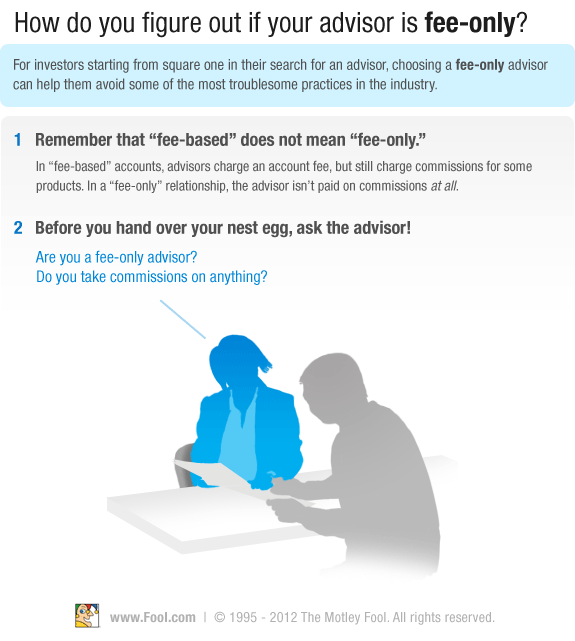How Much Does a Financial Advisor (Planner) Cost
Post on: 5 Июль, 2015 No Comment

At some point, many people come to a place where they need to hire professional help, especially when it comes to managing their wealth and future. Justifying the use of an accountant can be easy; you either don’t want to do your own taxes or you have a complicated return that requires the skills and expertise of a CPA. Attorneys can be expensive, but often you don’t have a choice if you want to get the best legal advice.
The same holds true for a financial advisor or financial planner. For those who don’t want to invest on their own or want access to on-going professional financial advice, working with a financial planner or investment advisor can be a very good decision.
At Glassman Wealth Services we’re often asked, “How much does a financial advisor cost?” There seems to be a lot of confusion about the fees for financial planning services, which is understandable, because most companies don’t explain this clearly on their websites, and therefore customers have to do more thorough research. Just as confusing is what services they can expect for their money.
In this article, I hope to shed some light on the ways that financial advisors are compensated. I’ll tackle the question of what you should expect for your money in my next article.
The Cost of Professional Financial Advice
Should you pay an hourly fee for a simple consultation, or pay a fixed annual fee or a fee based on the percentage of assets for on-going work? That depends on how complicated your financial situation is and how much help you want.
Hourly Consulting Services:
Some financial advisors offer hourly consulting services which allow their clients to get an initial allocation of their investments and financial plan. A financial plan often reviews the current investments, tax planning, insurance coverage, and even cash flow budgeting. The client then has a blueprint based on their current situation along with some financial projections, and then implements the advice on their own.
While this is not something Glassman Wealth Services offers since we work with families on an on-going basis, it can be a great solution for many people. There are several advisors in our Review of the Best Financial Advisors in the DC/MD/VA Area that offer this type of service.
Annual flat rate fee or percentage of assets:
Other firms, like ours at Glassman Wealth Services, base their fees on a percentage of the assets they invest and manage for the client, or sometimes a flat annual fee. These fees can range from 2% at the higher end to as low as .2% depending on the size and complexity of the client’s portfolio. As an example, our fee starts at
1% for the first $2 million of assets we manage and will decrease for larger portfolios.
Many firms, like ours, are fee-only advisor and fiduciaries. meaning they cannot accept any other commissions or fees so clients know exactly what they are being charged. Our fees are fully disclosed, transparent and aligned with the goals of our clients.
Percentage of assets and commissions:
Some independent or dually registered advisors can charge a fee for managing assets and can also make commissions on investment or insurance products that they recommend. If you plan to work with this type of advisor always ask if they will make a commission on things like annuities or other investments that they recommend.
Watch out for hidden fees:
People are usually surprised to learn about hidden trailing fees or commissions earned by advisors at brokerage firms. Of course, not all advisors at these institutions receive this revenue, but it’s important to know where the conflicts of interest may lie.
A great example of hidden fees is 12b-1 fees. These are fees (usually 0.25%) that advisors can make on many mutual funds. Clients do not see these fees on their statement because they’re sent to the advisor directly from the mutual fund company. Does this create a conflict of interest? Likely no, but it’s important for people to know of this hidden revenue stream.
We often meet with prospective clients who don’t fully understand what they’re being charged and how their advisor makes money. That’s a scary thing to think about as a consumer. It’s always best to ask your advisor or those you’re interviewing how they are compensated and if there are any conflicts of interest.
What do you get for your money?
Knowing what you are getting for your money is just as important as knowing what you are paying. The quality of financial advice and the value of the resources offered by financial planning firms can vary quite a bit.
Don’t miss my next article: Are Financial Advisors Truly Worth the Money. where we’ll review the range of services offered by financial advisors and financial planners.














